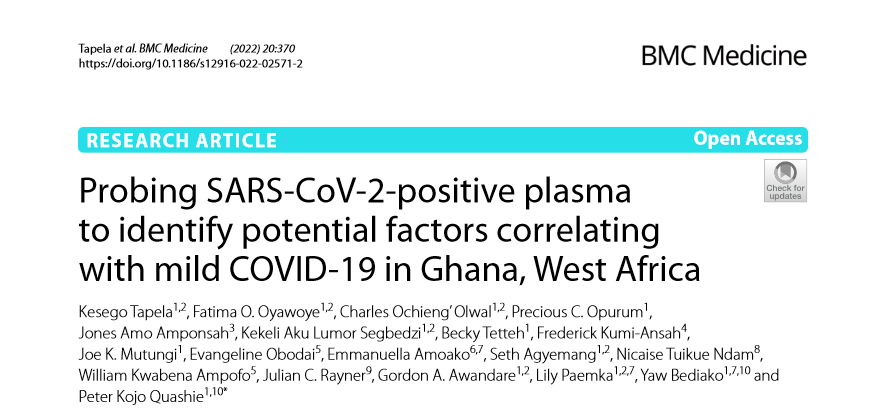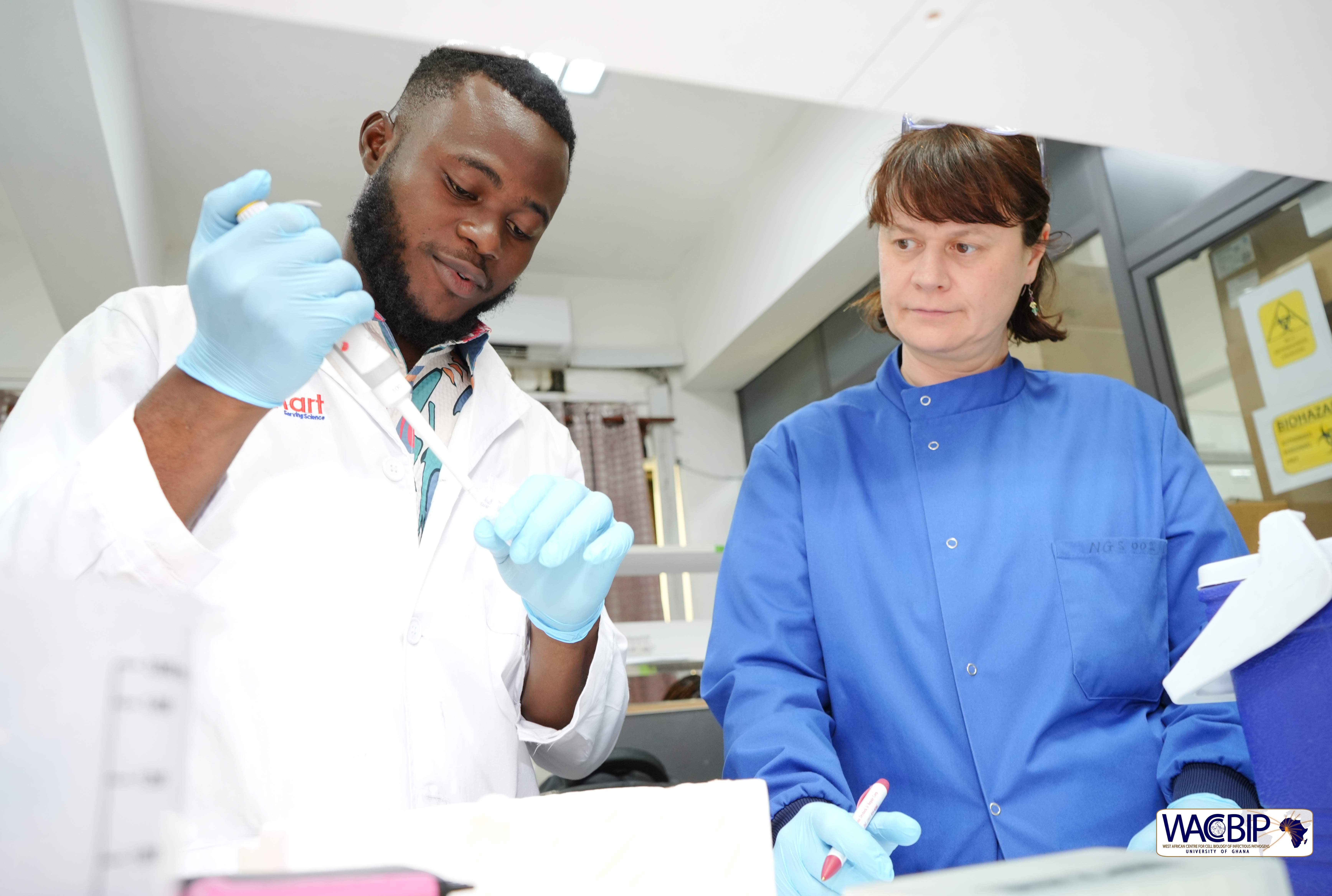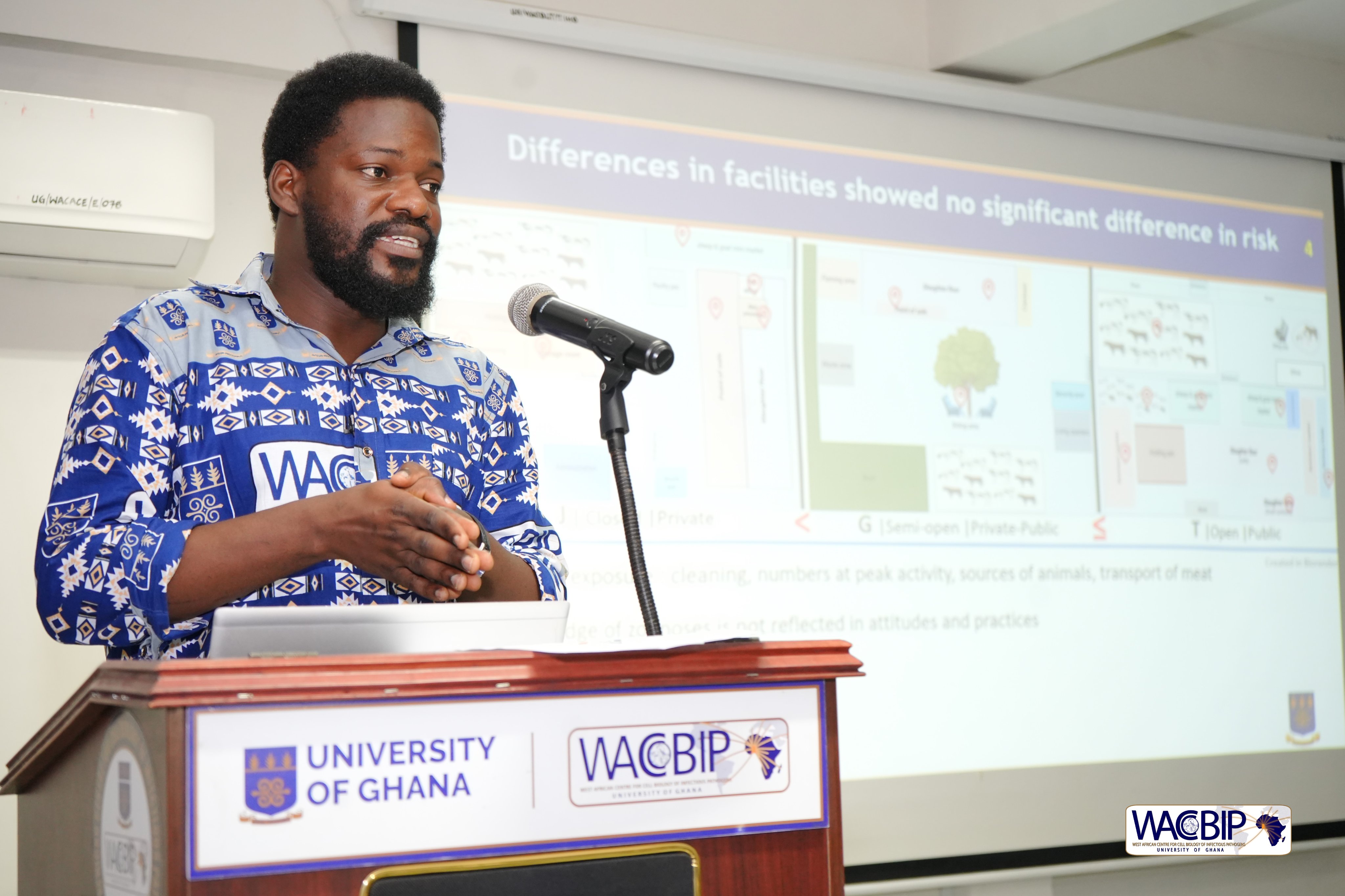Research Scientists from the West African Centre for Cell Biology of Infectious Pathogens (WACCBIP), University of Ghana, and other collaborators have published a paper titled “Probing SARS-CoV-2-positive plasma to identify potential factors correlating with mild COVID-19 in Ghana, West Africa”, in the prestigious high-impact journal- BMC Medicine.
The scientists are Kesego Tapela, Fatima O. Oyawoye, Charles Ochieng, Precious C. Opurum, Jones Amo Amponsah, Kekeli Aku Lumor Segbedzi, Becky Tetteh, Frederick Kumi‑Ansah, Joe K. Mutungi, Evangeline Obodai, Emmanuella Amoako, Seth Agyemang, Nicaise Tuikue Ndam, William Kwabena Ampofo, Julian C. Rayner, Gordon A. Awandare, Lily Paemka, Yaw Bediako, and Peter Kojo Quashie.
West Africa has recorded a relatively higher proportion of asymptomatic coronavirus disease 2019 (COVID‑19) cases than the rest of the world, and West Africa‑specific host factors could play a role in this discrepancy. Prof. Gordon Awandare in his charge during the recently concluded 6th Annual WACCBIP Research Conference highlighted that “What we know as truth is that the impact of the virus has not been as severe here as elsewhere because we have developed immune systems that were appropriately conditioned to minimise the damage caused by the virus and as scientists, it is our responsibility to understand how; as that knowledge would be key to the development of vaccines as well as better therapies, and this represents the advantage that we possess”
In this paper, the scientists have assessed the association between COVID‑19 severity among Ghanaians with their immune profiles and ABO blood groups.
This work is the first immunology study of SARS-COV-2 Infection published from Africa and represents critical steps in identifying factors responsible for decreased morbidity associated with SARS-CoV-2 in sub-Saharan Africa. It also demonstrates the progress made in understanding the role of population genetic diversity in dynamic disease response. The study also shows the importance of local collaborations as the work was done by an extensive network of public health institutions across Ghana.
Results from this study show that there was a trend linking blood group O to reduced disease severity, but this association was not statistically significant and that symptomatic patients displayed significantly elevated levels of cytokines (immune cells) except eotaxin and that there were also significant associations between other immune markers (IL‑6, IL‑8 and IL‑1Ra) and disease severity.
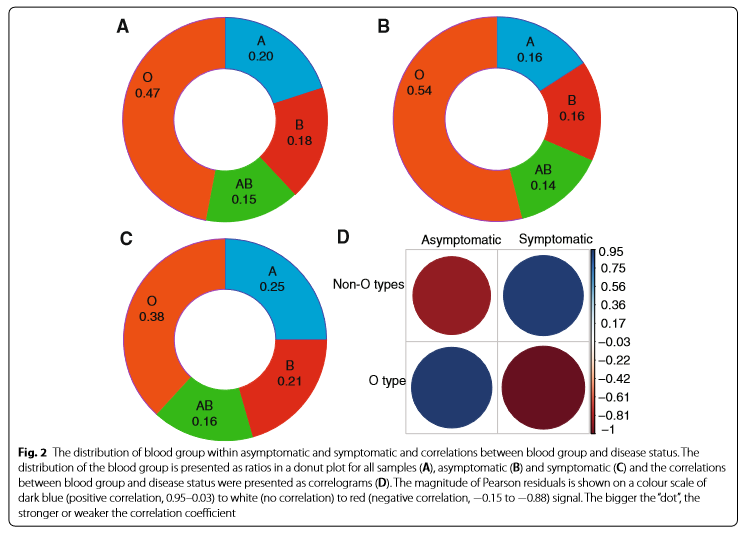
Figure 1: Trends in blood type in symptomatic vs asymptomatic COVID-19 presentations.
Also, cytokines’ clustering patterns differed between symptomatic and asymptomatic cases with most of these steadily decreasing with time while anti‑SARS‑CoV‑2 antibody levels remained stable for at least a month, regardless of the COVID‑19 status.
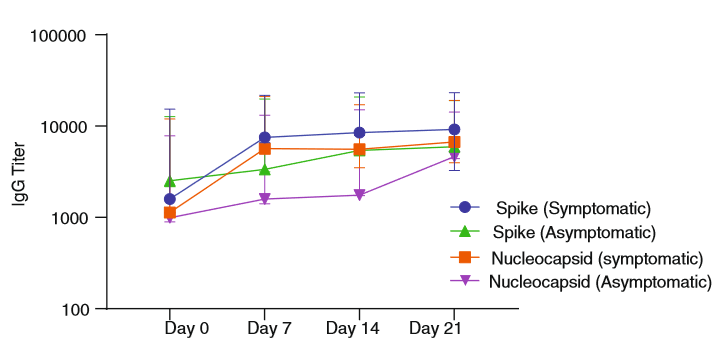
Figure 2: Antibody response to SARS‑CoV‑2 . Data represents the median quantity of antibody quantities per participant category obtained by extracting the medians across the time points per patient and 25th and 75th percentiles
Together, these observations provide new insights on the SARS-CoV-2 immune response in the West African population, which can be explored further in larger studies. This study represents evidence that a combination of host biological factors is linked to mild presentations of COVID-19 in Ghana.
Further research will be focused on cell populations associated with symptomatic and asymptomatic infections, the impact of different variants/waves and single-cell sequencing to fully decipher the impact of potential modulators of the immune response such as Plasmodium sp. Infection (malaria).

